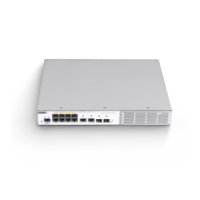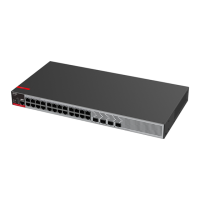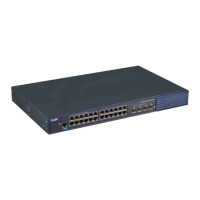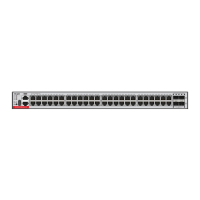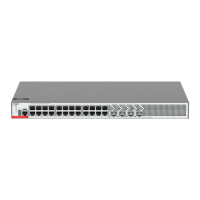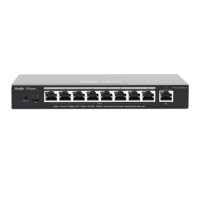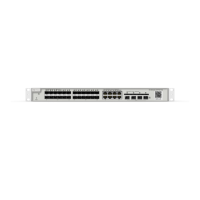Configuration Guide Static Route Configuration
Static Route Configuration
Configuring Static Routes
Static routes are manually configured so that the packets can be sent to the specified
destination network go through the specified route. When it fails to learn the routes of some
destination networks, it becomes critical to configure static routes. It is a common practice to
configure a default route for the packets that do not have a definite route.
To configure static routes, execute the following commands in the global configuration mode:
Ruijie(config)# ip route network mask {ip-address |
interface-type interface-number [ip-address]}
[distance]
Ruijie(config)# no ip route network mask
Ruijie(config)# ip static route-limit number
Specify the maximum number of
static routes.
Ruijie(config)# no ip static route-limit
Restore the default maximum
number of static routes.
If they are not deleted, Ruijie product will always retain the static routes. However, you can
replace the static routes with the better routes learned by the dynamic routing protocols. Better
routes mean that they have smaller distances. All routes including the static ones carry the
parameters of the management distance. The following table shows the management
distances of various sources of Ruijie product:
Default management distance
Directly connected networks
When a port is “down”, all routes to that port will disappear from the routing table. In addition,
when Ruijie product fails to find the forwarding route to the next-hop address, the static route
will also disappear from the routing table.
When the sum of load-balancing route weights exceeds WCMP limit, the exceeded routes will
not take effect. For example, if the WCMP limit on a device is 8, only one static route
configuration is effective :
Ruijie(config)#ip route 10.0.0.0 255.0.0.0 172.0.1.2 weight 6
Ruijie(config)#ip route 10.0.0.0 255.0.0.0 172.0.1.4 weight 6
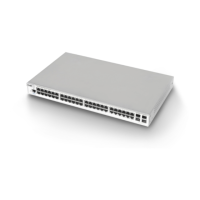
